If you eat Cheerios for breakfast on a regular basis, perhaps you have asked yourself if your dog might enjoy some as well. Cheerios seem to be the safest food on the market! Made with whole grains, shaped in a small ‘O’, given to babies, and in production for generations. What’s not to love about the Cheerio? If humans, and even babies, are able to eat Cheerios without complication, the same should be true for dogs. Right? Can dogs eat cheerios?
The cherrio is crunchy, tasty, come in many flavors and your dog is most likely eager to eat them. There is a wide variety of Cheerios to choose from. Thus, the answer to this question depends on the assortment and on the amount of sugar each one cherrio contains. Many people offer their dogs food without checking sugar content, unaware that excess sugar can cause diabetes in their dog and a host of other problems. Cherrios have a strong reputation as a relatively healthy and safe cereal, but the sugar content should still be checked before adding to your dog’s diet.
Keep on reading to find out more useful and informative tips on the subject.
Can Dogs Eat Cheerios?
Yes, you can give your dogs some cheerios but it’s not the best snack for them.
While the plain oat assortment of this cereal is low in sugar and is recommended by the American Heart Association, the AHA recommendations do not necessarily make the cheerio the number one food for your dog. The AHA may recommend the cereal for human consumption, but not for dog consumption. The human health guidelines do not always mirror the health guidelines for dogs. This fact confuses some dog owners and should be addressed when visiting your vet. Your local vet is a good source of information in regards to the diet of your dog, and his/her advice must be followed more than the advertisers and commercials for the food meant for human consumption.
Cheerios contain mostly wheat. Canines digest wheat distinctively and considerably quicker, some may also suffer from allergic reactions to this ingredient. Wheat is a good ingredient to ingest for most people, but for dogs, the digestion may cause stomach pain, gas, and irritability. At the same time, the cheerio made of wheat does not present the valuable nutrients and proteins your dog requires. Offering the cheerio without any true nutritional benefit to your dog will not cause any serious harm, such as death, but may cause other side effects that are unpleasant and unnecessary given the lack of vitamins your dog will actually absorb. Thus, if you wish to train your dog and reward him with some Cheerios, opt for the plain oatmeal variety. The oatmeal version of the ‘O’ will be less of a risk of side effect due to wheat, and may even have a lower sugar content as well.
While there are risks involved with dogs eating wheat, not all dogs will have a reaction. You can safely offer your canine buddy occasional plain Cheerios treats. They do not present harmful effects to your dog’s diet. Still, it is best not to feed Cheerios or other foods to your furry pet that lack nutrients on a regular basis. Dogs need a diet rich in proteins and other minerals. Cheerios, as occasional behavioral treats, are perfectly fine. Cherrios may also be useful when training a puppy given the size of the cherrio and the ability to flick the bite sized bit into the dog’s mouth.
However, make sure to never feed Cheerio’s to your furry pal as a meal – too much sugar can present harmful effects on your dog’s health. Filling your dog’s bowl with Cheerio’s is not the same as making a bowl of Cherrio’s for yourself. Adding a little sprinkling of cheerio to the top of your dog’s kibble is a decent alternative-as long as the sugar content is checked and deemed safe.
Precautions When it Comes to Cheerios
Flavor
When feeding your dog a cheerio, you must remember to check the sugar and limit the quantity you feed him/her. Besides the aspect of quantity, another important fact you should take into consideration is its flavor. As you probably already know, Cheerios come in a wide range of flavors. Some flavors encompass larger amounts of sugar than others; sugary varieties are considerably more harmful to your pet. As days go by, the flavors of cheerios seem to expand, revealing new and exciting ways in which to enjoy the snack. With every new addition of flavor, be sure to verify the sugar counts as well as the nutrition counts. Verifying the added ingredients is also a safe bet since the more a cheerio is altered, the more potential side effects could arise because of added ingredients.
Secondly, steer clear of feeding your canine buddy chocolate Cheerios. As you most probably already know, chocolate is a snack that leads to food poisoning and even death in dogs. The warning signs accompanying chocolate poisoning are too much energy, shaking, convulsions, extreme thirst, and diarrhea. If you suspect that your dog has consumed chocolate treats, you should not wait for the side effects to occur. Talk to your veterinarian immediately. You may need to take your dog to the vet for appropriate care. If not treated accordingly, your dog’s condition can become severe. Early treatment is crucial because it will help your pet to recover quicker and decrease the costs of the medical intervention. With dogs being unable to eat actual chocolate, do not purposefully feed your dog a food dipped in chocolate either.
Thirdly, pairing Cheerios with a bowl of milk is not recommendable for your dog. A lot of dogs are lactose intolerant, making dairy products not the best choice when it comes to a dog’s dietary habits. Coupling the cheerio and the milk together is asking for problems later on. The high amount of sugar, as well as the lactose that is unable to be digested, will make your dog sick and uncomfortable. Your dog may even like this food, and begin to reject his/her own kibble in preference for cereal and milk. With dogs unable to process and digest this food, without dogs gaining any nutritional benefit from a bowl of cereal and milk, there really is not any good reason to offer this food to your pet.
Possible allergic reactions
Wheat allergy is one of the most common allergies dogs suffer from. The symptoms of an allergic reaction include behavioral changes, ear inflammation, vomiting, diarrhea, constant licking, itchy and red skin, abnormal scratching, chronic gas, nausea and so on. Allergies to wheat cause such an array of reactions to dogs, that dog owners should avoid wheat all together if there is even a possibility of a reaction. Dogs do not need wheat in their diet as humans do. Dogs have all the nutrients they need from their dog food. Adding wheat into the diet, when unsure of allergy risk, will only cause pain for you and your pup. Offering wheat is not worth it in the long run.
Additionally, you should know that every dog can develop allergic reactions; as a matter of fact they are usually more common in breeds such as bulldogs, Boston terriers, terriers, retrievers, and setters. A dog may not seem to have a reaction the first couple of times s/he ingests wheat or a cherrio, but over time, an allergy may develop and become exacerbated.
In the event your dog has an allergic reaction after eating cheerio’s, the best line of defense if to first call a vet for advice. It might be difficult at first to ease the allergic reaction. For this reason, it is best to take the dog to the vet as soon as you notice the symptoms of an allergy attack. The vet will help you determine the source of your furry pet’s allergy and can perform further tests and get to the core of the problem.
Be honest with your vet to ensure your dog receives the treatment needed-your vet will not judge you or punish you for offering your dog cheerios. It’s important not to exclude ingredients out of your pet’s diet before discussing this issue with the vet. Exclusion diets should not be adapted unless you are 100 percent convinced that your pet is allergic to a certain ingredient and that can only be settled by a veterinarian.
Conclusion on Cheerios
Cheerios do not incorporate toxic substances that are likely to harm your furry pal’s health, except for the chocolaty varieties. Cheerios do not contain the additives and preservatives many other dry foods contain, thereby making the cheerio a bit more ‘pure’ than other processed foods. There are also gluten free cheerio’s offered that may be used as an alternative to the regular brand in the event your pet has an allergy. However, they should not be a regular treat in your pet’s diet, as they do not encompass substantial amounts of vitamins and minerals that your furry pet requires. Adding food to your dog’s diet should be done so for nutritional benefit above all else.
Additionally, you should also pay attention to possible allergic reactions, as wheat is one of the top foods that trigger it in dogs.
Whenever you want to give your canine buddy Cheerios treats, compare it with a child that wants to be given candy. As you know, a parent should be strict when it comes to offering sweets to their children. So, the same principle applies when it comes to our furry, constantly begging pets.
Related articles:
References:

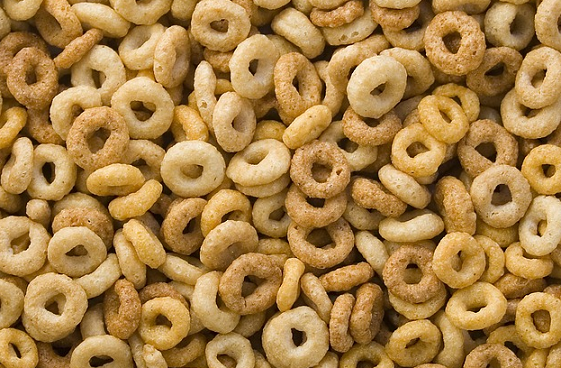
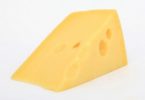


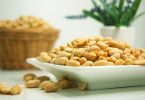
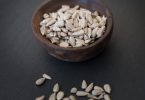
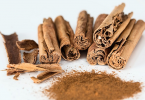
Leave a Comment